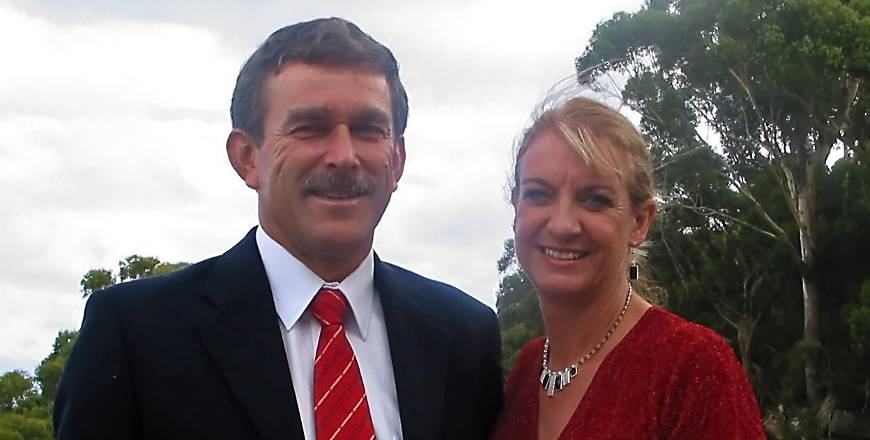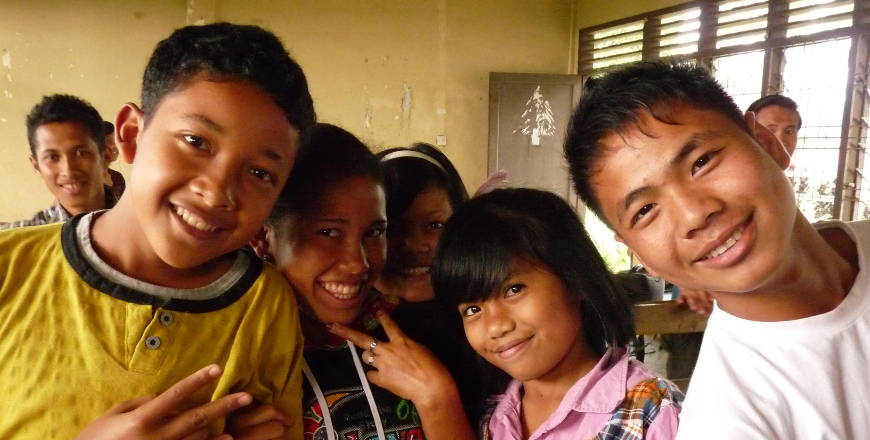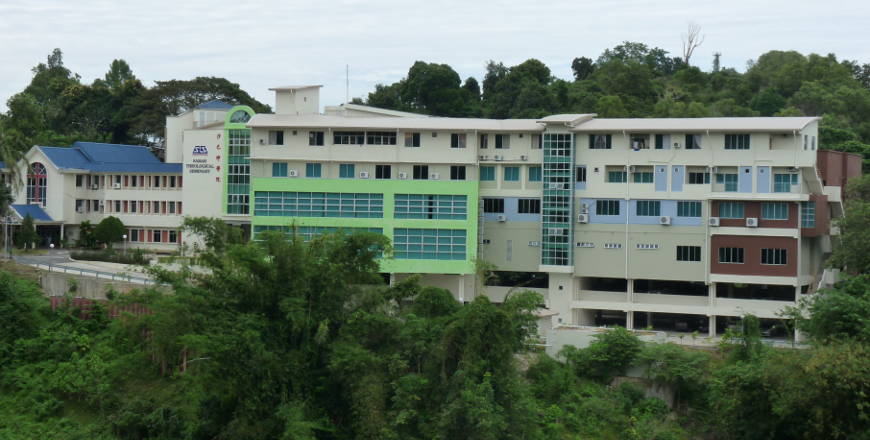Worth it
Like other Australian missionaries who have served in Papua New Guinea (PNG), my wife Dianne and I are acutely aware that our presence and work there was made possible only by the many faithful people in Australia and New Zealand who gave financial support, prayer and encouragement.
We are also ever grateful for the support given to us by Lutheran Bible Translators Australia (LBTA), which enabled our Bible translation work among the Bukawa people in PNG. In return, we hope in this article to give some feedback and encouragement, and to express our thanks to all those on the ‘home team’ who partnered with us along the way.
It seems like a lifetime ago that our time with the Bukawa people began back in 1990. As there had never been any in-depth language study done there, our first tasks were to learn the language and analyse the sound system and grammar in order to devise the most practical orthography or alphabet system. But before even that was possible, we had to work with local men to build a village house for our family.
Di missed out on a lot of the initial language learning and social interaction, as she home-schooled our children through to secondary level. After graduating, one by one they left us to board at the Lutheran hostel at the international school run by SIL International at Ukarumpa in the Eastern Highlands of PNG.
Step by step I gained insight into the Bukawa language, and translation progressed. We made initial publications of our trial versions of Mark, Luke and Genesis, as well as developing some basic liturgical resources, hymns and songs for the local congregations.
One other important aspect alongside the translation work was encouraging local pre-schools using the Bukawa language. This blossomed in 1996 when Bukawa was taken on as one of three schools for a pilot program of elementary school reform that was (and still is) being undertaken on a nationwide scale. We worked with the provincial government to help train teachers and work with them to develop curriculum materials for their schools.
The complete New Testament in the Bukawa language was completed and dedicated in 2001. We continued some further translation work and elementary school development until the end of 2002, when we returned to Australia.
Of course, all that transpired in the thirteen years that we spent living with the Bukawa people is impossible to encapsulate in a few paragraphs, but here are some of our memories:
– Transport difficulties – initially on rough dirt tracks, crossing many rivers (often in flood), then by sea in open dinghies; once we were swamped while trying to get ashore and we lost computers and a camera.
– A constant stream of people coming to Di for medical assistance and advice – usually turning up right on mealtime or in the dark.
– Having to be on guard against rascals, mainly while travelling by road outside of our territory; fortunately, only once did we look down the barrels of shotguns.
– The many dear friendships developed over the years; for us to be regarded by the Bukawas as one of them is an indescribably great honour.
– Having to say goodbye to our children as they went off to boarding school.
– Seeing the ‘lights come on’ as people came to understand God’s word in a more meaningful way as they read it in their own language for the first time, and then seeing them read and re-read it with joy.
Was it worth it?
In April 2008 Di and I made a return visit to the Bukawa people. For six years we had hoped for and planned to make this trip, but time and distance created mixed feelings. We dearly wanted to see our friends again, but we wondered if they felt the same way about us. Would the younger ones even remember us? What would we do for transport to and from the village? How rusty would our language skills be? Is PNG a more dangerous country now than when we were there?
Such concerns were still on our minds as we travelled to the village by boat. At a stop along the way someone informed us that ‘everyone at Bukawa is waiting for you’. But when we got ashore only a couple of our best friends were there to meet us. They led us up the bush track to the village, and it was only when we saw the traditional ‘Welcome’ barrier across the village entrance that we realised where ‘everyone’ was. The entire village was there, many with tears streaming down their faces. Several people held our hands and led us into the village to a seemingly endless stream of people, who came to hug us and express their gladness to see us again. Lots of hugs, lots of tears.
The days that followed were filled with visits from people who wanted to hear our story and share theirs. On numerous occasions gratitude was expressed to us for having lived so many years among them and for the translation and other work we did.
One of the many people who thanks due for the Bukawa New Testament was an elderly lady who came to visit us one evening. She said that she loved it and had read it through many times. Now that she had God’s word in her own language, she could understand parts that had previously been unclear.
One morning the elementary school kids (most of whom were only toddlers or not even born when we left Bukawa) dressed up in traditional gear and led us up to their classrooms. After visiting them and observing their lessons, we were taken to the nearby community school, where several hundred kids packed into the school hall to hear what we had to share. Even teachers, some from other language areas, were eager to hear ‘the white man who speaks Bukawa’.
Our friend Yateng had vacated his room in his house for us. One of the things Di had been dreading was backache from sleeping on pandanus mats on a wooden floor, but when we opened the door to ‘our room’, what should greet us but our every own bed and mattress that Yateng had purchased from us when we left the village in 2002. What a blessing! We were given our own private ‘washroom’ at the back of the house – bits of ragged canvas and plastic hung around a 44-gallon drum of water, with even an old saucepan to dipper the water over ourselves.
Lots of delicacies were brought to Yateng’s cookhouse for us, and there was constant laughing and chatter among the women who came to help cook for us. We can still recall Lautuwi’s distinctive laugh and her morning greeting, ‘Good morning, Mista Bill and Missis Dien Hekaman’ in PNG-style English.
Among the many friends we dearly wanted to catch up with was a man named Gangogac, who lived in a village about an hour’s walk away. We had enquired about him, only to be given conflicting messages, such as ‘He’s in Lae’ or ‘He’s so old he doesn’t go anywhere these days’. We decided to go to his village anyway, but the morning before that, who should turn up at Bukawa but this dear man. He had set out at dawn and had slowly made his way, using the shaft of a broken beach umbrella as a walking stick. He said, ‘I heard you had come back and I just couldn’t miss the chance to see you again’.
It is impossible to fully convey what our visit meant to us and the Bukawa people. Those who have worked in PNG and gone back can no doubt share similar experiences. For us it was an extremely emotional time – the joy of reunions with so many friends who treated us as part of their family, tempered by the knowledge that we would soon have to say goodbye again.
For friends such as Gangogac, this was perhaps the last time we will meet this side of eternity. There was sadness, too, shared with families among whom some of the once-familiar faces were missing.
But overall we received a huge expression of gratitude for our time and our work. Our hope is that we can in some way extend those expressions of thanks to you, the people in Australia and New Zealand who made our work with the Bukawa people possible. For those who ask about our work, ‘Was it worth it?’, the answer is a resounding ‘Yes!’
‘Dange daesam. Pomdau nem mbec mac hong!’ (Many thanks. May the Lord bless you all!)
If you would like to consider the opportunity to donate to Hanna Schulz, who is now serving as a linguist and translation advisor in Papua New Guinea, you are invited to go to https://wycliffe.org.au/member/hanna/
Read more stories about our partner church in Papua New Guinea at http://www.lcamission.org.au/category/stories/international-partners/papua-new-guinea/




